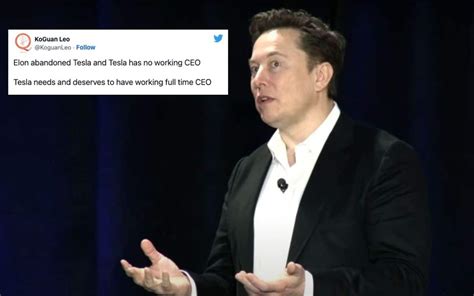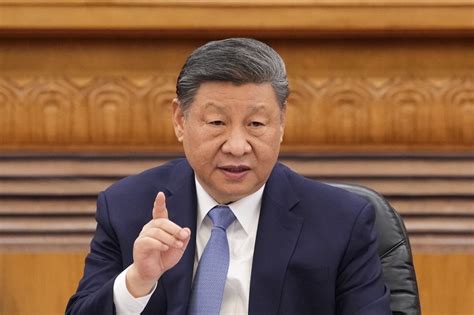
BYD’s rapid ascent in the electric vehicle market is triggering concerns in Beijing, signaling a potential upheaval within China’s automotive industry. The Warren Buffett-backed automaker’s aggressive pricing and technological advancements are putting pressure on both domestic rivals and international giants, leading to calls for government intervention to ensure fair competition and prevent market instability.
BYD, which stands for “Build Your Dreams,” has become a dominant force in China’s EV sector, surpassing Volkswagen as the best-selling car brand in the country and challenging Tesla’s global leadership. This meteoric rise, fueled by a vertically integrated supply chain and government support, is now prompting anxieties within Chinese regulatory bodies. Concerns revolve around the potential for overcapacity, price wars that could cripple smaller players, and the long-term health of the nation’s automotive ecosystem.
“BYD’s success is undeniable, but its disruptive impact necessitates a closer look at the competitive landscape,” said Li Qingwen, an auto industry analyst based in Shanghai. “The government is wary of allowing any single company to exert too much control over such a strategically important sector.”
The central government is reportedly considering measures to rein in BYD’s expansion, including stricter enforcement of anti-dumping regulations and potential adjustments to EV subsidy policies. The goal is to foster a more balanced market where innovation thrives without sacrificing the viability of other automakers.
BYD’s Unprecedented Growth and Market Dominance
BYD’s success story is rooted in its comprehensive approach to EV manufacturing. Unlike many competitors who rely on external suppliers, BYD produces its own batteries, semiconductors, and other critical components. This vertical integration allows for greater cost control, faster innovation cycles, and a more resilient supply chain – advantages that have proven crucial in navigating global chip shortages and supply chain disruptions.
The company’s aggressive pricing strategy has further fueled its growth. BYD offers a range of EV models at price points that undercut both domestic and international competitors. This affordability, coupled with technological advancements in battery technology and vehicle performance, has made BYD vehicles highly attractive to Chinese consumers.
The numbers speak for themselves. In 2023, BYD sold over 3 million new energy vehicles (NEVs), a category that includes both battery electric vehicles (BEVs) and plug-in hybrid electric vehicles (PHEVs). This figure represents a significant increase over the previous year and solidifies BYD’s position as the world’s leading NEV manufacturer.
Concerns over Market Distortion and Overcapacity
While BYD’s success is a testament to its innovation and efficiency, it has also raised concerns about market distortion and potential overcapacity. The company’s aggressive pricing tactics, while beneficial to consumers, have squeezed the profit margins of other automakers, particularly smaller players who lack the scale and resources to compete effectively.
“The fear is that BYD’s dominance could lead to a race to the bottom, where automakers are forced to cut prices to unsustainable levels in order to maintain market share,” explained Zhang Jian, a professor of economics at Peking University. “This could ultimately harm the industry as a whole, stifling innovation and leading to bankruptcies.”
Another major concern is overcapacity. China’s EV industry has seen a surge in investment in recent years, with numerous new players entering the market. However, demand for EVs may not keep pace with the rapid expansion of production capacity, leading to a glut of unsold vehicles.
“If left unchecked, overcapacity could lead to a price war that devastates the industry,” warned Li Qingwen. “The government needs to step in to ensure that investment is aligned with market demand and that resources are allocated efficiently.”
Potential Government Intervention and Policy Adjustments
In response to these concerns, the Chinese government is reportedly considering a range of measures to regulate BYD’s expansion and promote a more balanced market. These measures could include:
-
Stricter Enforcement of Anti-Dumping Regulations: The government could scrutinize BYD’s pricing practices to ensure that it is not engaging in unfair competition by selling vehicles below cost.
-
Adjustments to EV Subsidy Policies: The government could reduce or eliminate subsidies for EV purchases, which would level the playing field for automakers who are not as vertically integrated as BYD.
-
Increased Scrutiny of Mergers and Acquisitions: The government could block or place restrictions on mergers and acquisitions that would further consolidate BYD’s market power.
-
Promoting Fair Competition: The government could introduce policies to promote fair competition and prevent monopolies.
“The government’s goal is not to punish BYD for its success, but rather to ensure that the company’s growth does not come at the expense of the rest of the industry,” said Zhang Jian. “The key is to strike a balance between promoting innovation and maintaining a healthy competitive landscape.”
Impact on International Automakers
BYD’s rise is not only impacting domestic automakers but also posing a significant challenge to international giants like Volkswagen, General Motors, and Toyota. These companies, which have long dominated the Chinese automotive market, are now facing fierce competition from BYD and other domestic EV manufacturers.
Volkswagen, in particular, has been struggling to maintain its market share in China. The German automaker has been slow to transition to EVs and has been outpaced by BYD in terms of technology and pricing.
“Volkswagen is facing an existential threat in China,” said Michael Dunne, an automotive industry consultant based in Hong Kong. “The company needs to accelerate its EV strategy and find ways to compete more effectively with BYD.”
General Motors and Toyota are also feeling the pressure. Both companies have announced plans to invest heavily in EVs in China, but they face an uphill battle to catch up with BYD.
“The international automakers need to understand that the Chinese EV market is fundamentally different from the rest of the world,” said Dunne. “They need to adapt their strategies to the unique conditions of the Chinese market or risk losing out to BYD and other domestic players.”
The Global Implications of BYD’s Success
BYD’s success in China has global implications. The company is now expanding its operations overseas, with plans to build factories in Europe and other regions. This expansion could disrupt the global automotive market and challenge the dominance of established automakers.
“BYD is not just a Chinese company; it is a global player,” said Li Qingwen. “The company has the potential to become a major force in the global EV market, and its success will have a profound impact on the automotive industry as a whole.”
BYD’s global expansion is likely to intensify competition in the EV market and drive down prices. This will benefit consumers but could also put pressure on automakers in other countries to innovate and become more efficient.
“The rise of BYD is a wake-up call for the global automotive industry,” said Dunne. “Automakers need to take BYD seriously and prepare for a future where the company is a major competitor.”
The Technological Edge
A significant factor in BYD’s success is its technological prowess, particularly in battery technology. BYD’s Blade Battery, known for its enhanced safety and energy density, has given the company a competitive edge. The Blade Battery uses lithium iron phosphate (LFP) chemistry, which is less prone to overheating and thermal runaway compared to nickel-based batteries. This has significantly improved the safety profile of BYD’s EVs.
Moreover, BYD’s expertise in semiconductors allows it to better manage its supply chain and reduce its reliance on external suppliers. This vertical integration gives BYD greater control over its costs and allows it to respond more quickly to market changes.
“BYD’s technological capabilities are a key differentiator,” said Zhang Jian. “The company’s expertise in batteries and semiconductors gives it a significant advantage over its competitors.”
The Future of China’s EV Industry
The future of China’s EV industry is uncertain. BYD’s continued success will depend on its ability to maintain its technological edge, manage its costs, and navigate the regulatory landscape. The government’s policies will also play a crucial role in shaping the future of the industry.
“The next few years will be critical for China’s EV industry,” said Li Qingwen. “The industry is at a crossroads, and the decisions that are made in the coming months will determine its long-term success.”
Regardless of what happens, BYD has already established itself as a major player in the global EV market. The company’s success is a testament to its innovation, efficiency, and strategic vision.
BYD’s Response to Concerns
While BYD acknowledges the concerns raised by regulators and competitors, the company maintains that its success is the result of its commitment to innovation and customer satisfaction. BYD argues that its aggressive pricing is a reflection of its efficiency and that it is not engaging in unfair competition.
“BYD is committed to providing high-quality, affordable EVs to consumers,” said a company spokesperson. “We believe that our success is a result of our hard work and dedication, and we are confident that we can continue to grow and thrive in the Chinese market.”
BYD also emphasizes its contribution to the Chinese economy, pointing to the jobs it has created and the taxes it has paid. The company argues that its success is beneficial to the country as a whole.
Challenges Ahead for BYD
Despite its success, BYD faces several challenges. The company’s rapid growth has put a strain on its resources, and it needs to ensure that it can continue to scale up its operations efficiently. BYD also needs to manage its relationships with regulators and competitors carefully to avoid any potential conflicts.
Moreover, BYD needs to continue to innovate to stay ahead of the competition. The EV market is constantly evolving, and BYD needs to ensure that it remains at the forefront of technological advancements.
Conclusion
BYD’s rapid ascent in the electric vehicle market has triggered concerns in Beijing, signaling a potential upheaval within China’s automotive industry. The government’s response to BYD’s dominance will have a significant impact on the future of the industry. The key is to strike a balance between promoting innovation and maintaining a healthy competitive landscape. BYD’s success has global implications, and the company is poised to become a major force in the global EV market. The automotive industry as a whole needs to take BYD seriously and prepare for a future where the company is a major competitor.
Frequently Asked Questions (FAQ)
1. What is causing concern in Beijing regarding BYD’s EV surge?
Beijing is concerned about the potential market distortion and overcapacity that could result from BYD’s rapid growth and aggressive pricing strategies. There are fears that smaller automakers could be crippled, leading to a price war and overall instability in the automotive sector. The government is wary of any single company having too much control over a strategic sector.
2. How has BYD achieved such significant growth in the EV market?
BYD’s success is attributed to its vertically integrated supply chain (producing its own batteries, semiconductors, and other components), aggressive pricing strategies, and technological advancements in battery technology and vehicle performance. It allows for greater cost control, faster innovation cycles, and a more resilient supply chain. Strong government support and consumer demand for affordable EVs have also contributed.
3. What measures might the Chinese government take to regulate BYD’s expansion?
The government could implement stricter enforcement of anti-dumping regulations to scrutinize pricing practices, adjust EV subsidy policies to level the playing field, increase scrutiny of mergers and acquisitions that would consolidate BYD’s market power, and introduce policies to promote fair competition and prevent monopolies.
4. How is BYD’s success impacting international automakers like Volkswagen and General Motors in China?
BYD’s growth poses a significant challenge to international automakers that have historically dominated the Chinese market. These companies are facing fierce competition from BYD in terms of technology, pricing, and market share. Volkswagen, in particular, has struggled to maintain its position and needs to accelerate its EV strategy to compete effectively. Other international players need to adapt their strategies to the unique conditions of the Chinese market.
5. What are the global implications of BYD’s success and expansion plans?
BYD’s global expansion, including plans to build factories in Europe and other regions, could disrupt the global automotive market and challenge the dominance of established automakers. This is likely to intensify competition in the EV market, drive down prices, and put pressure on automakers worldwide to innovate and become more efficient. BYD’s success is a wake-up call for the global automotive industry, signaling a shift in the competitive landscape.









